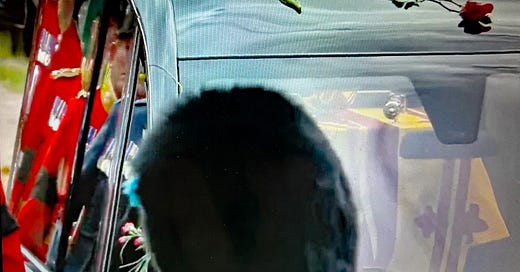The Glue of Ritual
Because I am weird, I ask questions, like this: When did the need for human ritual begin?
Has that question been on your mind?
The answer is in the myths. The trouble with the myths is that we don’t know when many of the stories were first told. Plus, we don’t know who originated them. Back in the day, there were no publishers, no copyrights. I don’t know if there was even the necessity to place an authorship on the stories. People who study such things, like anthropologists and archeologists, and a few other “ologists” of some sort that study the ancients, they have some ideas about these things. A consensus that I read about a couple of years back, now think many of those stories are about 6000 years old.
I am willing to bet they are even older than that. My theory is that the stories began when Sapiens, with their brains for remembering, were wandering around looking for something to eat. They would wile away the time around the old campfire and tell stories. We know that 25,000 years back they were putting up pictures on cave walls. The stories must be just as old. Think of it this way; it was a slide show. Or, a backdrop for a teller of tales.
Ah, the first ritual. The first stories to explain things, like comets crossing the sky, and eclipses and volcanoes blasting off and nasty hurricanes. Let’s not forget floods. And then there were the great hunters that led the hunting parties, and planned out a method for bringing down those huge beasts. And those women who had a knack for saving birth mothers from dying in childbirth. Which is just as difficult to explain as a comet, because what could be seen by the naked eye? Not much. All they knew is that some women died, and it was a horrible loss when populations were tiny. Midwives became some of the first heroes.
So stories were told, about heroes and great leaders.
Once humans started building permanent structures, there was a central location where art and telling would come together. The little stories about big events became enlarged to entice the population to return. And then to stay. But to get all those nomadic people to feel that they “owned” the place of stories, rituals were invented to bring them together. The tellers and the chiefs became the priests and the kings. Whilst the midwives were the first physicians.
Many of the tellers were women. They involved themselves in religious practices early on. Since women were the gatherers of foods, it had to be the women that discovered the hallucinogens. Back in the day, it is theorized, religions used hallucinogens to pass on the secrets of the gods.
Talk about a ritual!
From that point on, ritual was a part of the human experience. What we saw on Monday was a highly sophisticated rendering of ancient ritual. It was a fabulous funeral planned by, who else, a woman. This ritual, well, we needed that, for ritual is a shared experience. It brings us together. In this case, it brought billions together.
This queen was, and is, the icon of the honest and dutiful life, well lived. Ritual
radiated out from her to her people. If she were Catholic, she would be headed for sainthood. If she were an ancient, she would be elevated to goddess.
It is the same thing, saint or goddess.
I can hear it now, some teller, in a hundred years, will begin the telling of Elizabeth’s story, as a woman who fell in love, and stayed in love, throughout her long life. And how the gods blessed her with that long life because she was their child. But when her personal love, her prince, passed into the big sleep, she was so saddened she could not go on for much longer. So the gods took her, and brought her back into their company. And restored her to her lover, her prince.
Of course, there will be a moral to the story of Elizabeth II. My guess is that it will be fidelity that is taught. The faithful wife and the faithful leader are excellent morals to promote in ritual storytelling. Because these are habits, best practices, if you will, to promote among the people.
A people without a good ritual are a lost people. A people without a solid moral underpinning are a confused people. Which makes them easily lost in the great shuffle of things.
Civilizations are held together by ritual, shared ritual. When you think about why so much of the Western World is crumbling around you, ponder this concept of ritual. In a time when everyone wants to do their own thing, when their philosophy is all about them, as an individual, pertaining to their wants, their needs, well, do you really need to think deeply about this? Is atheism, which is a life without ritual, the way to be? I mean, what do you think will hold us together as a people?
I am not asking for a friend. I am asking for me. Tell me, what does ritual mean to you?




